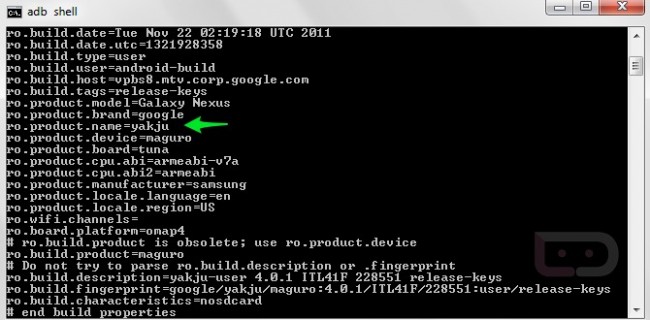Yakju. That’s a name you are about to hear come up a lot over the next few weeks as we approach the arrival of the Galaxy Nexus here on Verizon. The name – as pointed out by Jean-Baptiste M. Queru (an Android software engineer) in a post over at the Android Builders group – refers to the retail software configuration for the the GSM version of the G-Nex that is controlled directly by Google. If you read that sentence again, you probably get the feeling that there are other software configurations out there that aren’t 100% controlled by Google, right? That’s exactly the case. Within the last couple of days, the question has been raised, “Is the Galaxy Nexus still a pure Google or Nexus device?” The answer depends on your own definition.
As JBQ also points out in his clarification on yakju, he mentions that if you see alternate builds of yakjusc or yakjuxw (basically any form of yakju with extra characters on the end), just understand that Google is not directly controlling every aspect of them. In fact, as there are “per-country or per-operator software customizations” for essentially the same hardware, carriers and manufacturers are going to have final say in some of these software builds. That’s right, depending on the version of the Galaxy Nexus in your pocket, it could receive updates that have been altered by Samsung or a carrier. By most Android enthusiasts, that is not the definition of a Nexus.
So before we all freak out for a second let’s talk about this some more. As many of you know (since we pointed it out in disgust), the Verizon version of the Galaxy Nexus will have bloatware, which prompted many of you to ask if Google would still provide direct and untouched updates to it. Our initial reaction was, “of course, it’s a Nexus,” but now that a Google engineer has made it clear that carrier-specific versions are pushed out, that quote needs to be tweaked slightly. Let’s continue on though.
But does this really mean that the LTE version of the G-Nex is not a Nexus? If your definition is that the device has to receive updates that have been touched only by Google or it isn’t, then I think we know your answer. If you define it as a device that launches with the newest version of Android before anything, will receive updates faster than any non-Nexus phone on the planet, is unlockable at the bootloader, and is about as hacker-friendly as it gets, then technically it still is a Nexus.
To help clarify this situation, I’ll bring up the Motorola XOOM that is attached to Verizon. This device was released as the first with Honeycomb and with an unlockable bootloader. It’s basically a “Nexus” tablet. In fact, even though it is branded by Verizon, it still receives it’s updates directly from Google. Have they been slower at times than say the WiFi-only XOOM? Indeed it has. But, it’s still receiving stock builds from Google, only they have likely been slightly tweaked to meet the carrier’s needs. This post is a great example of that. If you hover over the download link for build HMJ37, you will see that the update is still coming from Google’s servers.
Basically what I’m saying, is that Google is still going to send you updates to your Nexus (if history holds up, that is). Will they have Verizon’s input? Of course they will, it’s running on their network and sold through their stores. I’m not sure you will find a company on the planet that would allow you to sell your product in their store without giving them at least some control – after all, it is their name on the back and their reputation on the line. If there is a problem with the phone, no one is running to Google’s front door to complain, they are headed straight into a VZW shop.
Bottom line here, is that the LTE Galaxy Nexus is still a Nexus. Since it is tied to a carrier though, it’s not going to be exactly the same as say an unlocked (non-carrier attached) Nexus would be, and that makes sense. It should by all means still receive constant updates directly from Google after Verizon gets to take a look at them. It will still be everything that you have been waiting for. Will there be times when Google releases say Android 4.0.5 and the non-carrier GSM variant receives it first and we all sit back and wonder where our update is? You betcha. But you can also bet that we will see it well before any non-Nexus phone will.
No need to freak out here, folks.
Update: Our buddy Jigga_Z pointed out the continuation of this conversation with JBQ that we missed and wish we hadn’t. According to what he was told directly by Google, the Verizon G-Nex will fall under the name “mysid” rather than “yakju” and will be supported in AOSP. He is also under the impression that “mysid” versions of the phone will receive updates directly from Google just as we had stated up above. So there may be bloatware, but it’s still a Nexus and is still getting updates directly from Google.
Cheers to everyone who sent this in!


Collapse Show Comments293 Comments